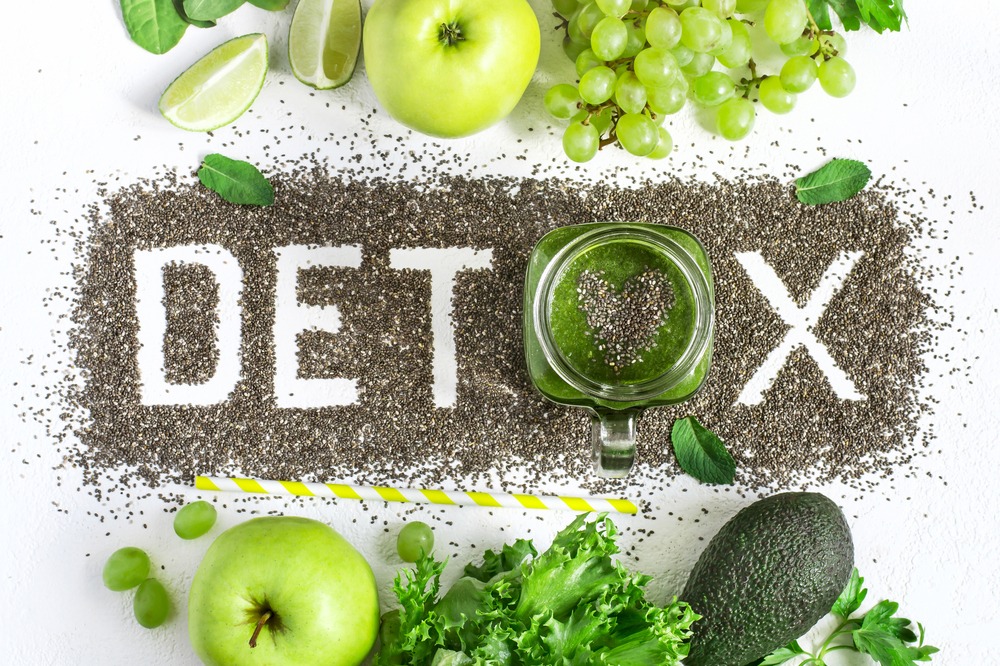It seems that every couple of months, celebrities, social media, and the news showcase a trending cleanse that is guaranteed to eliminate toxins while improving overall health and quality of life. These cleanses promise miracle outcomes that are difficult to ignore. In this article, we share the truth about detox diets and when athletes should become aware of the potential harms.
What does detox even mean?
 Technically, there is no such thing as a “detox” diet. The word “toxin” is not specific and has no widely accepted clinical definition. With that said, the commercial diet and supplement industry uses the word toxin to trigger fear about eating certain foods but are not referring to anything that is legitimately recognized in a medical sense. With such an unclear definition, it is nearly impossible to begin investigating the efficacy of diets to remove toxins when the very thing researchers would study is undefined. Due to the vague parameters, there are essentially no well-designed studies examining cleanse diets and supplements (Klein & Kiat, 2015).
Technically, there is no such thing as a “detox” diet. The word “toxin” is not specific and has no widely accepted clinical definition. With that said, the commercial diet and supplement industry uses the word toxin to trigger fear about eating certain foods but are not referring to anything that is legitimately recognized in a medical sense. With such an unclear definition, it is nearly impossible to begin investigating the efficacy of diets to remove toxins when the very thing researchers would study is undefined. Due to the vague parameters, there are essentially no well-designed studies examining cleanse diets and supplements (Klein & Kiat, 2015).
Even if there is no magic detox, your kidney, lungs, colon, and liver are remarkably efficient and effective at removing environmental pathogens from your body. Some dietary interventions can help these organs do their job better. First and foremost—fiber! Fiber is beneficial in so many ways (some of which are not yet fully understood), and one such benefit is in fiber’s ability to improve digestive regularity and move waste particles out of the body more efficiently (Koç et al., 2020). The latest research shows that the recommended intake ranges from 25-38 grams per day, and most people barely get half of that (Koç et al., 2020). Those interested in improving their body’s ability to remove waste may consider increasing their intake of high fiber foods such as beans (15 grams per cup), raspberries (8 grams per cup), chia seeds (10g per 2 TBSP serving), chickpeas (12 grams per cup), and broccoli (5 grams per cup).
Maintaining good hydration is also important to keep the kidneys performing at their optimal rate and removing pathogens and waste products from the body. Drinking enough fluids so that the urine is clear or pale yellow will help to protect the kidneys from unnecessary strain. There is some evidence that coriander, the malic acid found in grapes, the citric acid found in citrus fruits, and the succinic acid found in apples and blueberries may be useful in aiding in the process of elimination of toxic metals, an environmental pathogen accumulated in the body over time (Klein & Kiat, 2015).
Who can I trust when looking for information about this topic?
The internet is full of inconsistent and unreliable information regarding healthcare and nutrition. It can be difficult to recognize what information can be trusted, especially when false information is often shared by individuals claiming to be experts in the field. Interestingly, a study out of Ontario found that uncredentialed, self-proclaimed nutrition “experts” are likely to promote cleanses and detox diets, but registered dietitians unanimously did not promote any such interventions (Klein & Kiat, 2015). Furthermore, when a series of internet articles were examined, many of those written by uncredentialed professionals had been paid to promote the cleanses about which they wrote, creating a conflict of interest that creates user bias (Toth et al., 2019). Articles written by registered dietitians provided peer-reviewed references and empirical support with no conflicts of interest. Put simply, when asked to speak on the efficacy of detoxification diets, those who are credentialed and legally licensed to provide medical nutrition therapy unanimously reject the use of such diets. Keeping this in mind, readers should be cautioned when seeking information from those who are not credentialed.
The Bottom Line
The good news: a diet rich in colorful, plant-based products such as fruits, vegetables, beans, legumes, and whole grains have the beneficial nutritive properties needed for overall positive health. Rather than splitting hairs about specific diets or supplements aimed at detoxification, it would be more worthwhile to increase the overall nutritional density of the diet. Typically, when people tend to consume the top end of the recommended fiber range, they will find that they will be automatically eating a diet that follows such principles.
For more information on maximizing food for athlete performance and recovery, refer to the USADA Nutrition Guide .
References
Klein, A. V., & Kiat, H. (2015). Detox diets for toxin elimination and weight management: A critical review of the evidence. Journal of Human Nutrition and Dietetics, 28(6), 675–686. https://doi.org/10.1111/jhn.12286
Koç, F., Mills, S., Strain, C., Ross, R. P., & Stanton, C. (2020). The public health rationale for increasing dietary fibre: Health benefits with a focus on gut microbiota. Nutrition Bulletin, 45(3), 294–308. https://doi.org/10.1111/nbu.12448
Toth, J., O’connor, C., Hartman, B., Dworatzek, P., & Horne, J. (2019). “Detoxify or Die”: Qualitative Assessments of Ontario Nutritionists’ and Dietitians’ Blog Posts Related to Detoxification Diets. Canadian Journal of Dietetic Practice and Research, 80(3), 116–121. https://doi.org/10.3148/cjdpr-2018-047
Read more Spirit of Sport blog posts



